A huge thank you to our speakers for sharing their time, expertise, and experiences with us.
Speakers are sorted alphabetically by first name below.
Speakers are organized by session on the IFS CoP Google site; you can also find contact information there.
Aaron W. Sahagun Baumgardner
Director of Natural Resources | Catawba Nation | Catawba
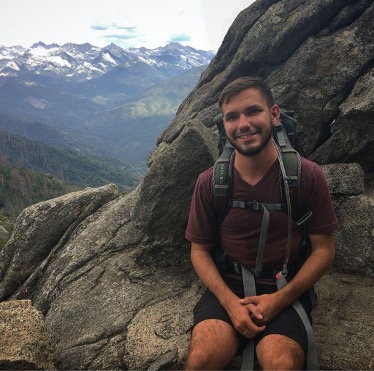
Aaron is the Director of Natural Resources for the Catawba Nation. He has been working for the Nation in this role since October 2021. Previously, he spent his early career in academic research settings focusing on plant ecology and working in a diverse range of ecosystems across the United States. At the Nation, he works to manage tribal trust lands, the Nation’s farm (Yawakče Yabsigre), and the Nation’s wildlife preserve. His vision for the Nation’s Division of Natural Resources is to restore Piedmont savannah and other native ecosystems to tribal lands, provide traditional food to tribal households, and create opportunities for tribal citizens to connect to their lands.Aaron is the Director of Natural Resources for the Catawba Nation. He has been working for the Nation in this role since October 2021. Previously, he spent his early career in academic research settings focusing on plant ecology and working in a diverse range of ecosystems across the United States. At the Nation, he works to manage tribal trust lands, the Nation’s farm (Yawakče Yabsigre), and the Nation’s wildlife preserve. His vision for the Nation’s Division of Natural Resources is to restore Piedmont savannah and other native ecosystems to tribal lands, provide traditional food to tribal households, and create opportunities for tribal citizens to connect to their lands.
Aja DeCoteau
Interim Executive Director | Watershed Department Manager | Columbia River Inter-Tribal Fish Commission | Yakama
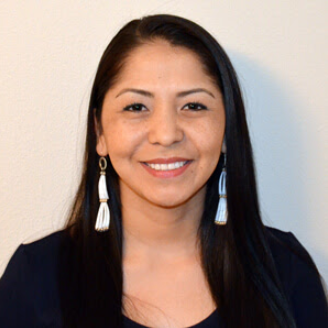
Aja DeCoteau is a citizen of the Confederated Tribes and Bands of the Yakama Nation and has other tribal lineage with the Cayuse, Nez Perce and Turtle Mountain Band of Chippewa Indians. She has over twenty years of experience working on natural resource management and policy issues in the Columbia River Basin. She currently serves as the Watershed Department Manager for the Columbia River Inter-Tribal Fish Commission (CRITFC) in Portland, OR, where she coordinates fisheries restoration and watershed protection activities on behalf of the Yakama, Nez Perce, Umatilla, and Warm Springs tribes.Aja also sits on the Board of Trustees for Earthjustice and the Board of Directors for the Columbia Land Trust and the Portland Energy Conservation, Inc. (PECI). She received her Bachelor of Arts in Environmental Studies and Native American Studies from Dartmouth College, and holds a Master of Environmental Management from Yale University, School of the Environment.
AlexAnna Salmon
Partner | Alaska Venture Fund | Yup’ik
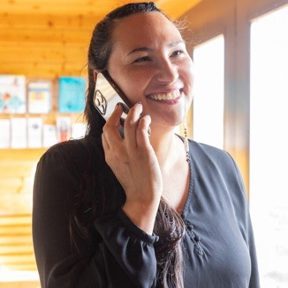
AlexAnna Salmon is President of the Igiugig Village Council. She is of Yup’ik and Aleut descent and was raised in the village of Igiugig, Alaska. In 2008, AlexAnna graduated from Dartmouth College with a dual Bachelor of Arts degree in Native American Studies and Anthropology. After graduating, she returned to work for the Igiugig Tribal Village Council where she was elected President and, until 2016, also held the role of Administrator. AlexAnna serves as a member of the Igiugig Native Corporation board, which is responsible for the stewardship of 66,000 tribal acres. She also serves on the Lake and Peninsula Borough Planning Commission, the Nilavena Tribal Health Consortium, and is a member of the Smithsonian Museum of Natural History’s Advisory Board. She received her Master’s Degree in Rural Development from the University of Alaska Fairbanks in 2021. In her work as President of the Igiugig Village Council, AlexAnna has been a driving force behind the community’s efforts to generate its own energy from renewable sources. In 2015, she was invited to President Obama’s roundtable discussion with Alaska Native leaders and was praised by Sen. Dan Sullivan in 2017 on the Senate floor for helping strengthen her community and making it an incredible place to live. AlexAnna loves raising her kids in the subsistence way of life, revitalizing Indigenous languages, and traveling.
Bernadette Demientieff
Gwich’in Steering Committee | Executive Director | Gwichyaa Zhee Gwich’in
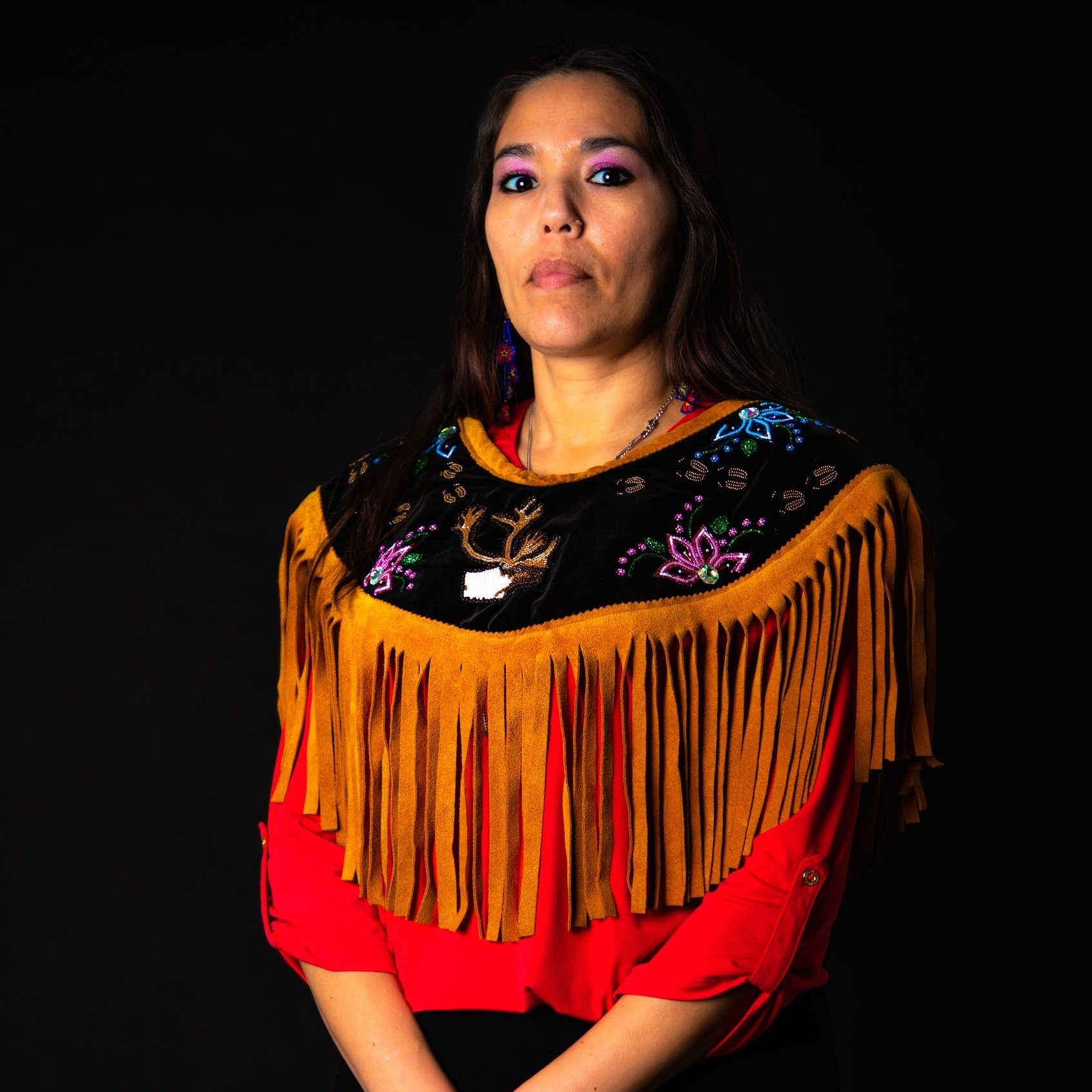
Bernadette Demientieff the Executive Director of Gwich’in Steering Committee is Gwichyaa Zhee Gwich’in she was raised in Fort Yukon and spent her summers in Venetie. Bernadette’s great grandmother was Marcis (Horace) Moses from Old Crow YT Canadian and her grandfather, Daniel Horace, is from Fort Yukon, Alaska. Her parents are Betty (Walter Flitt) of Alaska and Bernard (Melanie) Hornsby of Louisiana. Bernadette is the mother of 5 children and grandmother of 5 beautiful grandchildren. She takes this position very seriously and it has transformed her life to better serve her people. Bernadette stands strong to protect the Arctic National Wildlife Refuge-Coastal Plain, the Porcupine Caribou Herd and the Gwich’in way of life. Bernadette is a council member for the Arctic Refuge Defense Council. She also serves as an advisory board member for NDN Collective, the Care of Creations Task Force, Native Movement Alaska, and Defend the Sacred Alaska. She is a tribal member of the Gwichyaa Zhee Gwich’in Tribal Government, and on the leadership council for ITR. She continues to use her voice for what she believes in. She stands strong to protect the Arctic National Wildlife Refuge-Coastal Plain, The Porcupine Caribou Herd and the Gwich’in way of life. Our Identity is non negotiable, we will never sell our culture and our traditional lifestyle for any amount of money.
Buck Jones
Salmon Marketing Manager | Columbia River Inter-Tribal Fish Commission | Cayuse-Umatilla
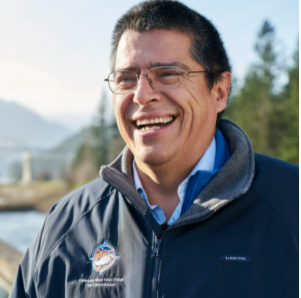
Buck Jones an enrolled Cayuse member one of the bands of Confederated Tribes of The Umatilla Indian Reservation. (CTUIR) Education includes College of Southern Idaho in general studies. Scottsdale Community College with a focus on Native American Treaty Law and Policy. A multi decade Columbia River Treaty Fisherman who has done various duties including harvesting, processing, and marketing of Tribally Caught Salmon. Employed at Ain Dah Yung in St Paul, MN an emergency shelter for runaway and homeless American Indian Youth from 1997 through 2000. Employed since 2004 for Columbia River Inter-Tribal Fish Commission (CRITFC). First on the Operation and Maintenance Staff of the In Lieu and Treaty Fishing Access Sites. Maintaining 29 Treaty Fishing Access and In-Lieu sites on the Columbia River. 2011 Fish Science Department, Fisheries Technician. In September of 2015 took my current Position of Salmon Marketing Specialist. This position has allowed me to work on Product Development, markets, provide classes on Cold Water and Boat Safety. Provide Quality Handling classes for approximately 700 Tribal Fisherman. Involved in National and Regional Tribal Food Sovereignty Groups including being a co-chair of the Food Sovereignty subcommittee for Affiliated Tribes of Northwest Indians.
Cheryl Ellenwood
Public Administration and Management doctoral candidate | School of Government and Public Policy at the University of Arizona | Nimiipuu
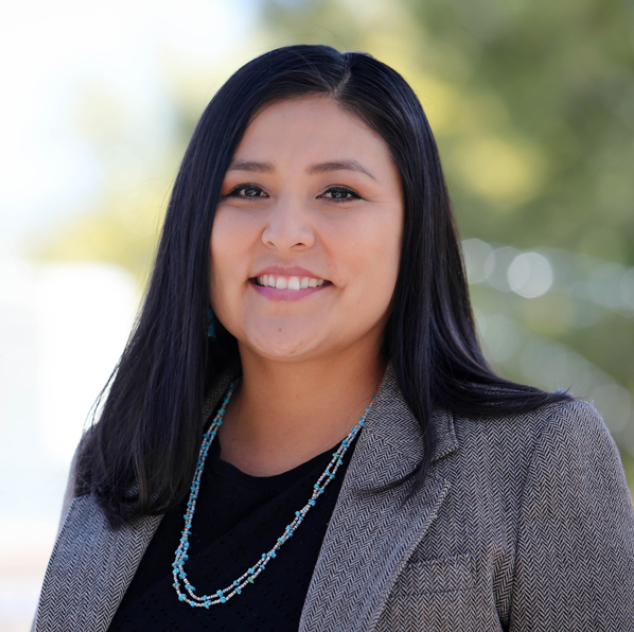
A citizen of the Nez Perce Nation of Idaho, Cheryl Ellenwood is a Public Administration and Management doctoral candidate at the School of Government and Public Policy at the University of Arizona. She also holds a master’s degree in American Indian Studies from the University of California, Los Angeles. Her research examines more equitable practices of philanthropy and third sector research, nonprofit management of minority-led and Indigenous-led organizations, and policy issues affecting healthy Indigenous communities including the disproportionate infection rates of COVID-19 within Indian Country. Her current research examines the relationships between organizational racial representation, public service to people of color, and the pervasive impact of whiteness on public organizations. She has experience working with Native-led organizations in both the public and private sector and is committed to advocating for Indigenous data sovereignty among Indigenous-led, community-based nonprofits.
Darlene Franco
Chairperson | Wukchumni Tribal Council of Tulare County | Wukchumni
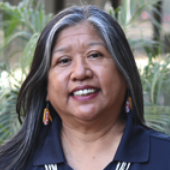
Wukchumni – Hedeh! Hoyowish nim Darlene Franco. I was born and raised in Visalia and I am excited to join the FAIHP team working with the Garden Project at the Discovery Center. I have been actively gardening for the past 4 years and enjoy helping people create their own home gardens, in boxes, rows, and various container styles. I am a lifelong student and teacher of my Culture, gathering, and learning basketry from my Grandma as a child. I have worked in the Native Community my entire life, starting as a youth worker for the Indian Education program in Visalia. I earned an AA degree in Liberal Arts from the College of the Sequoias. I have directed Native Language and Cultural Revitalization projects throughout California and I continue to be a cultural practitioner and teacher in my community. I enjoy working with all ages and I hope to create new and exciting activities for our families at the FAIHP. I currently am the Chairperson of the Wukchumni Tribal Council of Tulare County. I sit on the Board of Directors for the Quaker Oaks Farm and I am studying to become a certified Master Gardener in Tulare County. “Shoyum Maiyihn Paa’an” – Sacred is our Earth
Dave LaSarte-Meeks
Executive Director | Vadon Foundation | Coeur d’Alene Tribe / Schitsu’umsh

As a citizen of the Coeur d’Alene Tribe, David has spent his career advocating for Native American issues in a variety of roles. Since graduating from Brown University (B.S. Environmental Engineering) and Stanford University (JD and MBA), he has worked as an attorney or executive manager directly for Tribes, inter-Tribal organizations, Indian law firms, and Tribal enterprises in Arizona, Idaho, and Washington. David has been public spokesperson for statewide ballot initiative campaigns in Arizona, a litigator on multiple lawsuits with successful U.S. Supreme Court outcomes, and the leader of numerous successful housing or economic development initiatives in Indian Country. Immediately prior to his current role as founding Executive Director of the Vadon Foundation, David was Senior Attorney for the Native American Unit of the Northwest Justice Project, where he remains a member of the Board of Directors.
DeLesslin “Roo” George-Warren
Coordinator, Catawba Food Sovereignty Working Group | Catawba Nation | Catawba
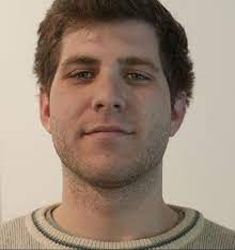
DeLesslin is the coordinator for the Catawba Food Sovereignty Working Group which has been meeting since 2018. Projects have included the rematriation of traditional Catawba corn, planting 100s of traditional plants, expanding our community gardens, revitalizing traditional ecological knowledge, and protecting our threatened plants and animals.
Geneva Wiki
Senior Program Manager | The California Endowment | Yurok
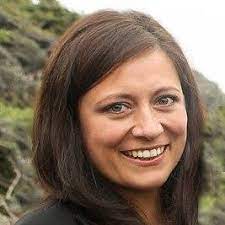
Prior to joining The California Endowment as a program manager, Geneva Wiki served as the Building Health Communities Initiative (BHC) Hub Manager during the first years of BHC. Subsequently, she relocated to New Zealand to consult with the New Zealand government as an Executive Designer with ThinkPlace, a human-centered design consultancy aimed at improving systems and policies to work better for people and the public good. While there, she was also appointed to the Board of Directors of the national Centre for Social Impact. Previously, Wiki was also the Executive Director of the Yurok Indian Tribe of California – of which she is a member – and Founding Director of a community-driven, non-profit charter high school on the reservation. Named one of America’s 37 Innovators under the age of 36 by the Smithsonian Magazine, Wiki’s work has also been recognized by the US Department of State, High County News, and Native Americans in Business and Enterprise. Wiki earned a Master’s degree in Public Administration from the University of Washington, and a degree in planning, public policy and management from the University of Oregon. She resides on the Yurok reservation with her husband and three daughters.
Jamie Donatuto
Community Environmental Health Analyst | Swinomish Indian Tribal Community | Swinomish

Jamie has worked with Coast Salish tribes for 20 years, and much of that time has been in collaboration with Larry— developing and implementing community-based indigenous health indicators. Jamie is a researcher and practitioner, with a current focus on evaluating tribal health-related impacts from climate change, developing community-driven adaptive management projects, and managing a Coast Salish foods and resources community education program. Jamie completed her doctoral studies at the University of British Columbia, Vancouver, Canada, in the interdisciplinary graduate program of Resource Management and Environmental Studies.
Jeremy FiveCrows
Public Affairs Specialist | Office of the Executive Director | Columbia River Inter-Tribal Fish Commission | Nez Perce
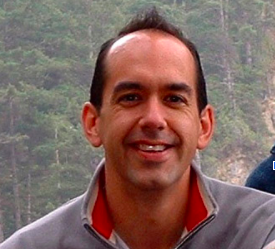
I was born and raised on the Nez Perce Indian reservation. I grew up traveling throughout the Nez Perce homeland with my family on hunting, fishing, and berry-picking trips. These travels instilled in me a strong sense of place and a dedication to preserving the environment. This was only increased when I saw the dedication to cherishing and protecting the environment of the people of Norway when I lived there for two years. (I think I can safely say that I might be the only Nez Perce Indian who is fluent in Norwegian.) I got a degree in Conservation Biology, which involved a lot of field studies along waterways in Utah and how essential water is, especially in deserts. With that degree, I hoped to do my part in helping protect and restore the environment. Today I do this in a roundabout way by combining my understanding of the natural world with my interest in sharing stories to promote salmon and river protection in the Columbia River basin.I have worked at CRITFC now for 24 years and love sharing the message that salmon and healthy ecosystems are important not only to the tribes, but to everyone who calls this place home.
Jon Matthews
Finance and Operations Director | Columbia River Inter-Tribal Fish Commission | Nez Perce
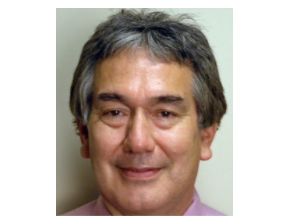
During his early career and while he was attending college, Jon Matthews worked for about 8½ years at the Bunker Hill Mining Company as a laborer, leadman, foreman and weighmaster. He learned to operate forklifts, bobcats, backhoes, dump trucks, drills, jackhammers and also worked with powder. As a bonded weighmaster, Mr. Matthews weighed, recorded and reconciled ore balances that were coming into the plant via railroad cars for processing purposes. As a leadman and foreman, he directed the labor pool that coordinated general plant maintenance and provided staffing for the plant’s departments. Mr. Matthews later worked as the Nez Perce Tribe’s economic development planner and as the General Manager of the tribal enterprises. He also served on the Tribe’s Enterprise Board, an elected position, for two terms. He was elected to serve as chairman for about four years during these terms. Mr. Matthews has also worked as a business consultant. Since 1994, he has worked at the Columbia River Inter-Tribal Fish Commission (CRITFC), serving as the Finance Director. His responsibilities include supervising finance, operations and the marketing of salmon. He works on various issues relating to these functional areas on behalf of the Commission. Mr. Matthews has also served on numerous boards and has participated on various panels to advance Native American issues.
Jonella Larson White
Partner | Alaska Venture Fund | Yup’ik
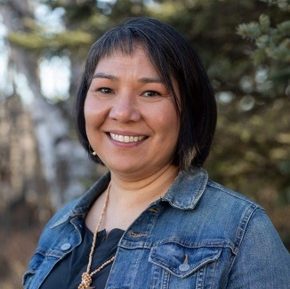
As a lifelong Alaskan, Jonella/Ququngaq (Yupik) recognizes and shares an appreciation for the complex challenges we face as Alaskans and is committed to using her experience and knowledge to help others meet the needs of their communities. Jonella was born and raised in Nome with strong family ties to Savoonga on St. Lawrence Island. She and her children are tribal citizens of the Native Village of Savoonga. Her love of Yupik art, culture, and ideology led her to the University of Alaska Fairbanks where she earned her Bachelor of Arts in Alaska Native and Rural Development with an emphasis in cultural documentation and community planning and to Harvard University where she earned her Master in Liberal Arts in museum studies. She is committed to working with leadership on issues and impacts related to climate and social justice, sustainable communities, and cultural expression.
Kevin Walker
President and CEO | Northwest Area Foundation
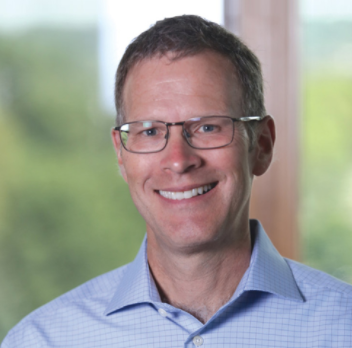
“I collect quotes habitually as teaching tools and touchstones. One of my favorites is a sentence from Walt Whitman that NWAF board member Michelle Osborne likes to cite: ‘We convince by our presence.’ For me, that’s a call to show up, pay attention, and be as authentic as I can be in my relationships. I also recently ran across this insight from the actor Alan Alda: ‘The secret to good listening is simple. Unless I’m willing to be changed by you, I’m not really listening.’ I believe in lifelong listening as the world continues to change, challenge, and inspire me.” Kevin spearheads the Foundation’s efforts to shape a future in which all people and communities in its region can thrive on their own terms and live free of poverty. Under his leadership, the Foundation has sharpened its focus on asset building in a set of priority communities: Native Americans, communities of color, immigrants, refugees, and people in rural areas. At the heart of this approach is NWAF’s commitment, honored every year since 2012, to target 40 percent of its giving to Native-led organizations. Other signature aspects of the Foundation’s work during his tenure include an expanded commitment to mission investing and an organization-wide drive to advance diversity, equity, and inclusion. Prior to joining the Northwest Area Foundation, Kevin spent 13 years with the Charles Stewart Mott Foundation in Flint, MI, including nine years as director of Mott’s national Pathways Out of Poverty program. His career in the nonprofit sector began in the early 1990s as associate director of Food Gatherers, a community-based anti-hunger organization in Ann Arbor, MI, whose mascot is a giant carrot. Kevin served for a decade on the board of Philanthropy Northwest, which he chaired from 2017 to 2019. He is also a past board chair of the Minnesota Council on Foundations. He currently serves on the board of BoardSource, the national organization dedicated to excellence in nonprofit governance. Kevin holds a bachelor’s degree from Harvard University and an MFA in poetry from the University of Michigan. He lives in St. Paul, MN, with his wife, Lisa, a teacher in the Minneapolis Public Schools. They have two sons: Theo and Max.
Kumu Micah Kamohaolii
Hālau Nā Kīpuʻupuʻu | Dezigns By Kamohoalii | Native Hawaiian
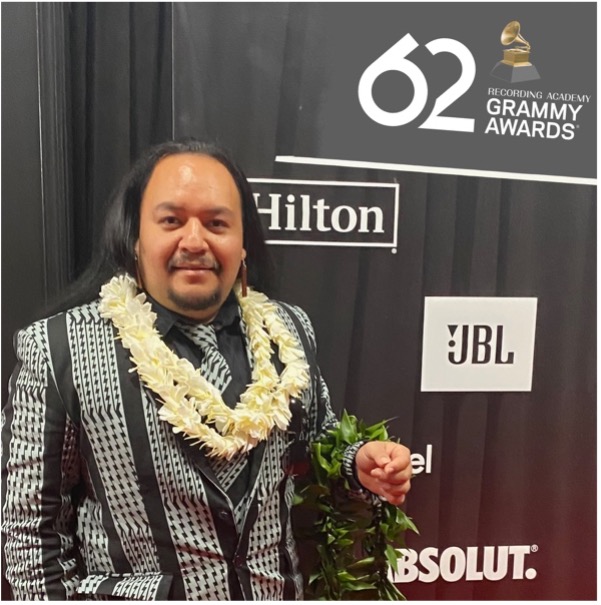
Kumu Micah Kamohoalii descends from a strong Hawaiian family deeply rooted in their culture and traditions, hailing from Hawaiʻi Island. He is an accomplished and a renowned Kumu hula, song writer, artist, Hawaiian expert and historian. His graphic designs has earned him a 2020 Nā Hokū Hanohano Award for his recent work with Amy Hanaialiʻi’s Kalawaiʻanui Album. His traditional dance school, Hālau Nā Kīpuʻupuʻu is world renowned and celebrated for being a powerhouse of energy, the most authentic, receiving highly acclaimed honors and accolades for their dance productions and presentations that have toured in many countries around the world. He is the CEO and creator of Dezigns By Kamohoalii, a popular clothing company inspired by his family’s extensive ties to the art of kapa making. His fashionable clothing company has hit the runs ways of New York, Japan, and Paris and are worn by celebrities and locals alike. He has been honored twice by the Native Arts and Cultures Foundation of Washington and was a recipient of the 2017 Cultural Preservation Award of presented by Hawaiʻi’s governor. His works of art have been featured in around the world, notably in Vogue magazine, the New York Times, The New York Botanical Gardens and The British Museum of London. Kumu Micah Kamohoalii is well-regarded in Hawaiʻi for being a native Hawaiian scholar, Hawaiian language and cultural consultant, archaeologist, historian, teacher, genealogist, artist and renown indigenous storyteller. He has worked in many mediums such as lei making, feather work, photography, printing, painting, film production, Hawaiian music, and most famously his work in reviving the customary practices of the Hawaiian kapa bark cloth. He continues to teach around the world sharing the native stories and the dance of his people.
Larry Campbell
Tribal Historic Preservation Officer/Cultural Resources | Swinomish Indian Tribal Community | Swinomish

Swinomish Elder Larry Campbell (wanaseah) has been actively involved in Coast Salish tribal affairs for 40 years. He has an extensive background in cultural resources, tribal policy, government-to-government relations, and community health. Larry has a Bachelor of Arts degree in tribal government. He co-manages the Swinomish Community Environmental Health Program with Dr. Jamie Donatuto.
Marcus Briggs-Cloud
Co-Director | Ekvn-Yefolecv Maskoke Ecovillage | Maskoke
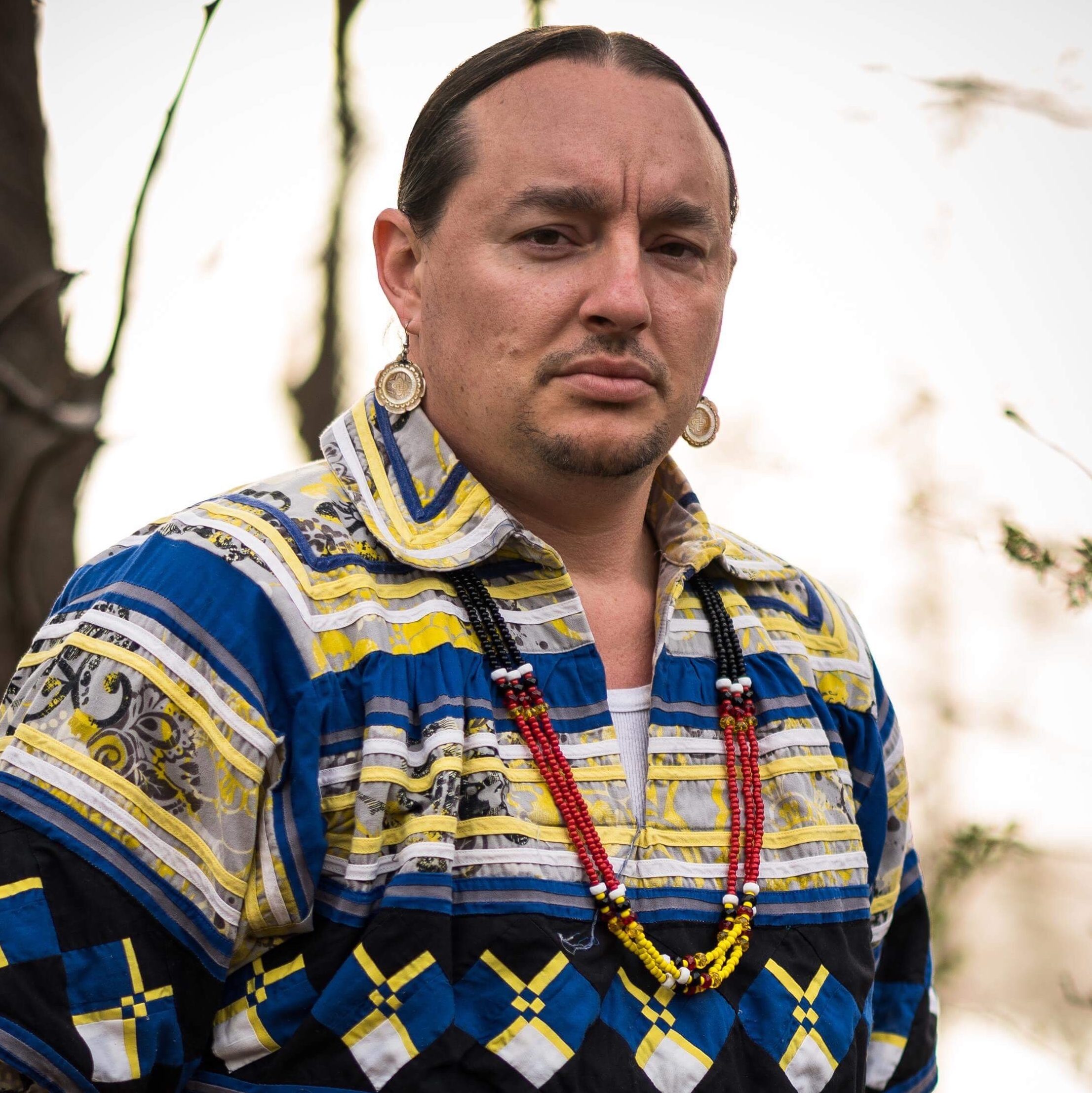
Marcus Briggs-Cloud (Maskoke) is a language revitalizer, scholar, musician and co director of Ekvn-Yefolecv Maskoke ecovillage. A graduate of Harvard Divinity School, he is currently a doctoral candidate in interdisciplinary ecology at the University of Florida where his work intersects ecology, liberation theology, linguistics and genetics. Marcus is partnered to Tawna Little (Maskoke) and they have two children, Nokos-Afvnoke and Hemokke, with whom Marcus enjoys speaking exclusively in the Maskoke language.
Mary Adelzadeh
Consultant | First Nations Development Institute | Navajo
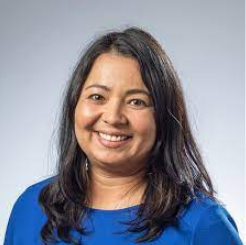
A member of the Navajo Nation, Mary Adelzadeh has extensive experience working with tribal and federal governments, as well as non-governmental organizations. She brings over 20 years of experience in project management, grant-writing, land, and natural resource planning and protection, and facilitating collaboration. She currently serves as a consultant to First Nations Development Institute and serves as a co-lead for the Intertribal Indigenous Stewardship Project focused on creating and strengthening Indigenous networks, strategies, models, and investment opportunities to support Indigenous-led stewardship in California. Mary is also a member of the Advisory Council for the Wildlife Conservation Society’s Climate Adaptation Fund and an advisory board member to the UC Santa Cruz Doris Duke Conservation Scholars Program, which is focused on diversifying the conservation field. Mary earned a Master of Science degree in Resource Policy and Behavior with a concentration in Conservation Biology from the University of Michigan. Mary also holds a Bachelor of Science degree in Environmental Biology and Management from the University of California, Davis.
Mike Roberts
President and CEO | First Nations Development Institute | Tlingit
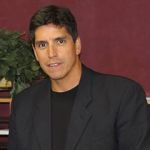
Michael Roberts (Tlingit) is the president and CEO of First Nations Development Institute, a position he was appointed to in 2005 after having served as a research officer and chief operating officer for the organization from 1992 to 1997 and returning to First Nations in 2002. In the interim, Mike spent five years in private equity, during which he advised angel investors and worked for a $500 million telecommunications fund and for an early-stage Midwest venture capital firm. Mike also worked at Alaska Native corporations and for local IRA councils, primarily in accounting and finance. He has taught a graduate business course on venture capital for the MBA program of the Bloch School of Business at the University of Missouri Kansas City, and an undergraduate business course on entrepreneurship at Haskell Indian Nations University. Mike serves on the Board of First Nations Development Institute and is chairman of the Board of First Nations Oweesta Corporation. He is on the Steering Committee of the Sustainable Agriculture and Food Systems Funders Network and the Investment Committee for the Three Affiliated Tribes. Mike also serves on the Board of Directors for Native Ways Federation. Mike has held board positions for Native Americans in Philanthropy and The Association for Enterprise Opportunity (AEO). He has been an Advisory Council member for the Center for Native American Public Radio, and a National Advisory Committee member for the National Center for Family Philanthropy. In 2018, Mike was appointed as one of 14 trustees of the new $266 million Native American Agriculture Fund that was created as an outgrowth of the Keepseagle v. Vilsack case. In April 2016, he received the Asset Builder Champion (ABC) Award, an initiative managed by the Center for Global Policy Solutions and the Insight Center for Community Economic Development. Mike was recognized along with fellow awardees Congressman Charles Rangel, Congresswoman Maxine Waters, and former Ford Foundation Vice President Melvin Oliver. Mike holds an MBA degree from the University of Washington with an emphasis in finance and operations management, and a bachelor’s degree in architecture through the environmental design school at the University of Colorado.
Mike and Patricia Hodson
Wow Farm | Waimea Hawaiian Homesteaders’ Assocation | Native Hawaiian
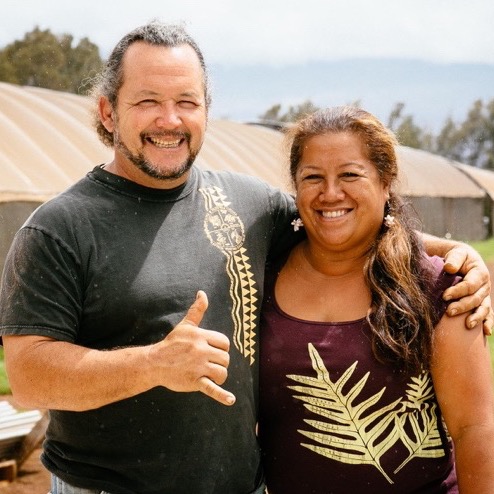
Mike Hodson comes from a family that has led native Hawaiian organizations for generations. He is a 27 year retired Narcotics Detective from the Hawaii County Police Department and has been an active community athletic coach in all sports for over 25 years. He lives on a Hawaiian Homestead Agricultural property and started farming with his wife on his land in 2005. He started growing organic greenhouse tomatoes because it was the hardest thing to grow in Hawaii. Today, Wow Farm has 48 – 2100 square feet greenhouses producing over 5000 pounds a week. Eight years ago, his wife Patricia Hodson wanted to help her fellow Hawaiian Homestead families to farm, so they started a greenhouse farming project called Farming for the Working Class. He developed a system for the project that utilizes the least amount of effort to produce the highest amount of production. To date, the Wow Farm family has assisted 43 families by building each a greenhouse and teaching their system with a hands-on training program, “Farming Farmers”. As the President of the Waimea Hawaiian Homesteaders’ Association and the Chairman of the Waimea Nui Community Development Corporation, they are taking the next steps by developing community Facilities for Farming, Equestrian & Ranching, Native Health Center, Cemetery, as well as additional community facilities.
Patricia Kainoa Hodson, a native Hawaiian mother of four is a fourth generation Hawaiian Homes Commission Act Beneficiary. She has been actively involved with youth in the community her entire life and has been involved with Waimea Hawaiian Homesteaders’ Association, a non-profit native Hawaiian organization, for the past 40 years and most recently as the Secretary for the past 10 years. She is the founder of WOW farm, one of a few successful native Hawaiian Farmers and has shared her knowledge with many in the native community. Her goal is to bring the community of Waimea to food self-sufficiency. Patricia is a “connector” and has been dubbed “Miss Aloha” for her kind and generous personality throughout the entire Waimea Community. She also co-funded “Kipuka O Ke Ola” the Homestead’s native Hawaiian Health Center and has been actively feeding over 350 families with a weekly Food Calabash of indigenous native foods that began in March of 2020, since the beginning of the pandemic.
Chef Nephi Craig
Executive Chef of Café Gozhóó | Western Apacheria | White Mountain Apache & Diné
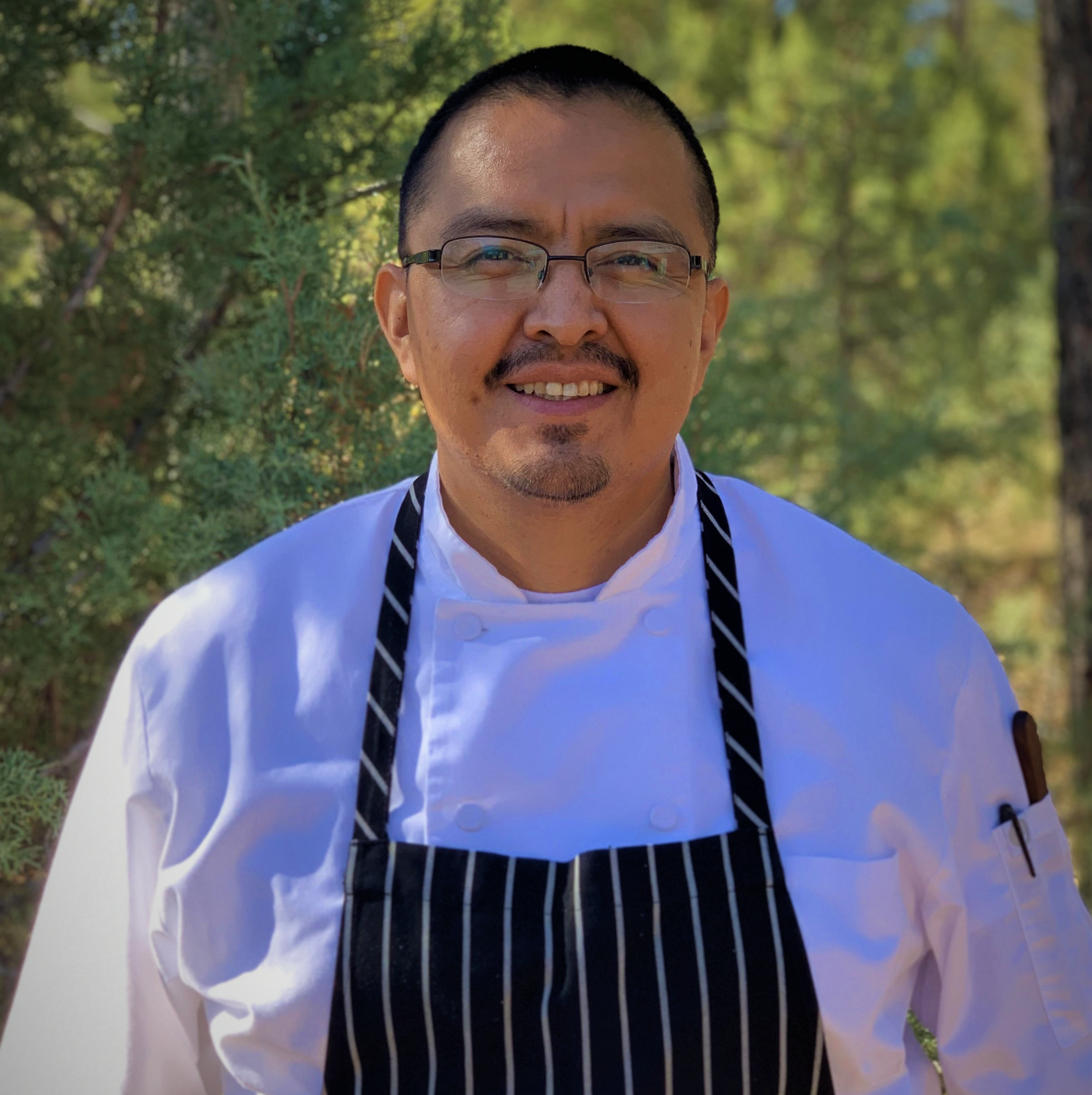
Chef Nephi Craig has 23 years culinary experience in America and around the world in London, Germany, Brazil and Japan. Nephi Craig is an enrolled member of the White Mountain Apache Tribe and is half Navajo. Chef Craig is also the founder of the Native American Culinary Association or NACA, an organization/network that is dedicated to the research, refinement, and development of Native American Cuisine. Chef Nephi Craig provides training, workshops and lecture sessions on Native American Cuisine for health to schools, restaurants, universities, treatment centers, behavioral health agencies, and tribal entities from across America and abroad. Chef Craig recently served as Executive Chef of the Sunrise Park Resort Hotel. During Chef Craig’s nine-year tenure at Sunrise Park resort, Craig and his White Mountain Apache culinary team achieved many national and international benchmarks in establishing a culture of Indigenous Foods across North America. Executive Chef Nephi Craig is currently the Nutritional Recovery Program Coordinator & Executive Chef at the Rainbow Treatment Center and Café Gozhóó on the White Mountain Apache Tribe in Arizona.
Raymond Foxworth
Vice President – Grantmaking, Development & Communications | First Nations Development Institute | Navajo
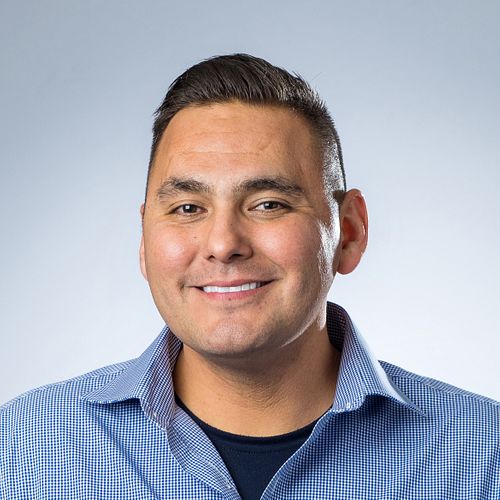
Raymond Foxworth serves as vice president of grantmaking, development and communications, with responsibility for the organization’s national grantmaking activities to Native nonprofits and tribal entities, its fundraising activities, and all communications functions. Previously he served as deputy director of development and senior program officer. As a senior program officer, Raymond participated in a range of program and research projects involving managing the Native food systems initiative, family economic security and strengthening the nonprofit sector in Indian Country. Moreover, as deputy director of development, Raymond was responsible for leading fundraising efforts with First Nations President Michael Roberts. Prior to joining First Nations, Raymond served as a project officer for the American Indian College Fund in Denver, Colorado, where he managed more than $19 million in projects that supported tribal colleges and universities across the U.S. He holds a B.A. and M.A. in political science, and in May 2015 received his Ph.D. in political science from the University of Colorado at Boulder. Raymond is a citizen of the Navajo Nation, originally from Tuba City, Arizona. He has served on the Board of Directors of Native Public Media, and he currently serves on the Board of Directors for Native Arts and Cultures Foundation. In 2015, Raymond was selected as one of 12 outstanding leaders from Independent Sector’s member organizations for the 2015 American Express NGen Fellows Program. This selective fellowship program continues to build the next generation of nonprofit and philanthropic leaders as part of Independent Sector’s NGen: Moving Nonprofit Leaders from Next to Now initiative. He also was named to the 2015 class of “Native American 40 Under 40” award recipients by The National Center for American Indian Enterprise Development. This prestigious award is bestowed upon individuals under the age of 40, nominated by members of their communities, who have demonstrated leadership, initiative and dedication, and made significant contributions in business and their community.
Rob Lothrop
Policy Development / Litigation Support Manager | Columbia River Inter-Tribal Fish Commission
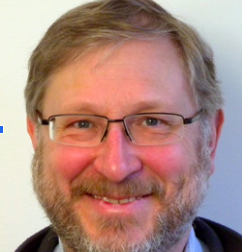
Rob Lothrop manages the Policy Development and Litigation Support Department at the Columbia River Inter-Tribal Fish Commission, where he has worked since 1981. The Commission was established by the Yakama, Warm Springs, Umatilla, and Nez Perce Indian tribes in 1977. The Commission assists these tribes with gravel-to-gravel management of the Columbia Basin’s salmon resources. The Commission’s Policy Department deals with the salmon management aspects of international fisheries, federal land management practices, coordination with state and federal fishery agencies in the Columbia Basin, and mitigation of hydroelectric project impacts. An overview of Columbia Basin hydroelectric project impacts to salmon and related mitigation programs is contained in Lothrop, The Misplaced Role of Cost-Benefit Analysis in Columbia Basin Fishery Mitigation, 16 Envtl. L. 517 (1986). In 2004, Lewis and Clark Law School presented Mr. Lothrop with its Distinguished Environmental Graduate award, honoring those who have gone on to distinguished careers in environmental law. Mr. Lothrop has a B.A. in Biology from Cornell College, a J.D. from Lewis and Clark Law School with a Certificate in Environmental and Natural Resources Law, and is a member of the Oregon State Bar.